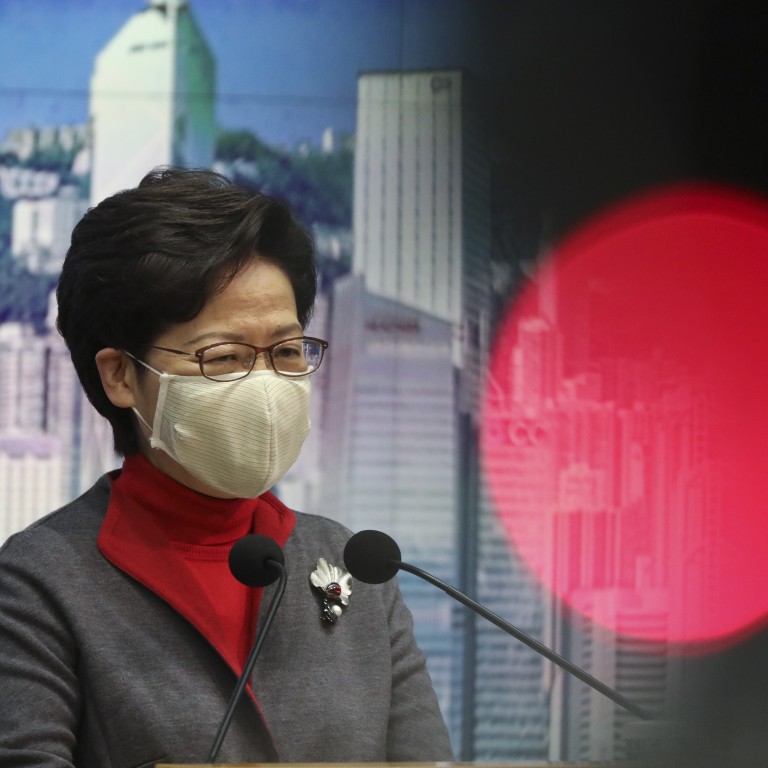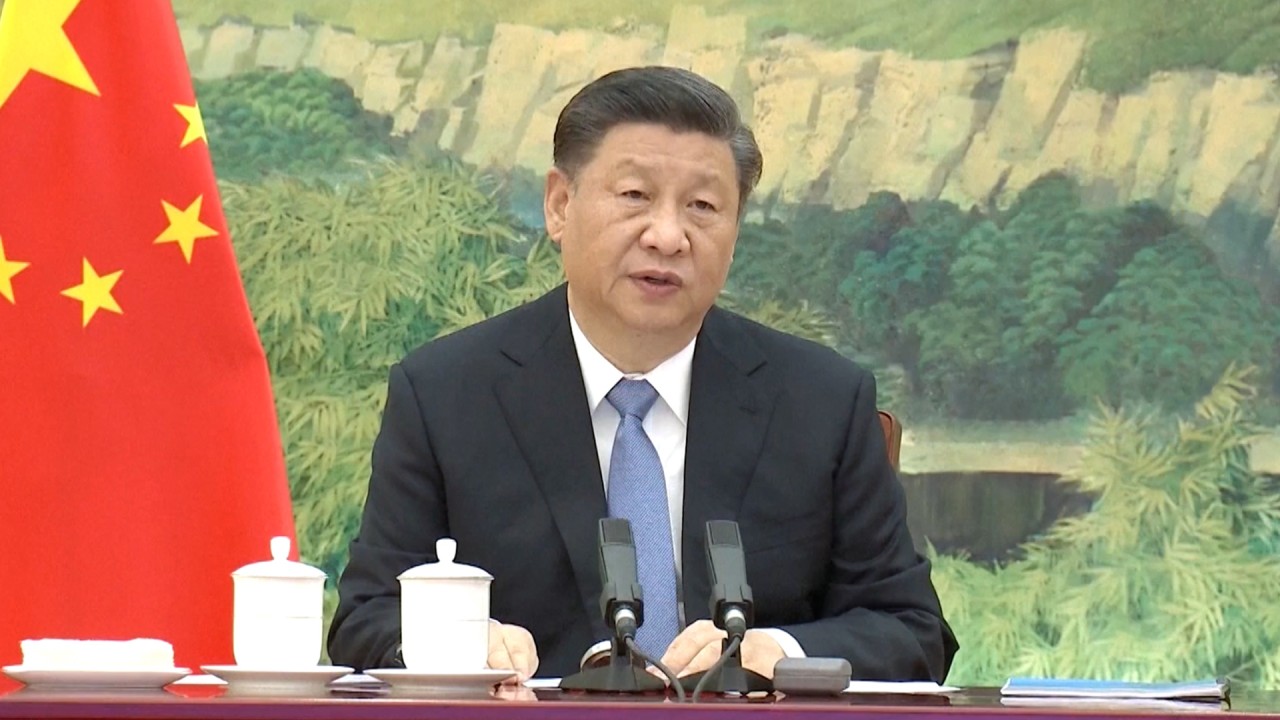
Has the definition of ‘patriots ruling Hong Kong’ narrowed under the national security law?
- It seems that to qualify as a patriot in today’s surreal Hong Kong, you must support Carrie Lam and her policies, and avoid criticism of the Communist Party or the motherland. Things seem to have changed from Deng Xiaoping’s time
Such victories will surely be hollow: there will be no meaningful mandate, if voters boycott elections in droves or cast blank votes. That’s a big if, but I would gladly give loyalists my full support if they could prove in direct elections that they have the people’s backing.

01:31
Xi says he is ‘worried’ about Hong Kong Covid-19 cases during virtual meeting with Carrie Lam
Insulting the anthem and burning the flag are illegal here. But can Hongkongers still peacefully criticise the Communist Party without any subversive intent? I wouldn’t try it if I were you, despite Deng’s assurances.
The Beijing-imposed national security law, with its many vague red lines, has moved the goalposts. A day after the law took effect, Justice Secretary Teresa Cheng Yeuk-wah couldn’t give a clear answer when asked at a media briefing if the law allows criticism of the Communist Party.
Mysterious revolt against Carrie Lam brews among the blue ribbons
There is an argument to be made that they protested because they love Hong Kong and the country, believing the bill would harm the city’s global image and unsettle people. There’s also an argument to be made that Lam is unfit to govern because she ignored the people’s wishes until protests turned violent.
It seems to me that to qualify as a patriot in today’s Hong Kong, you must support Lam and her policies, and never criticise the Communist Party or the motherland. Even opposition figures who consider themselves patriots will probably face obstacles in future elections. That will leave only yes-men who blindly toe the line.
Michael Chugani is a Hong Kong journalist and TV show host

